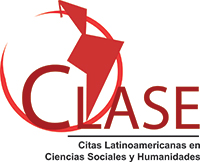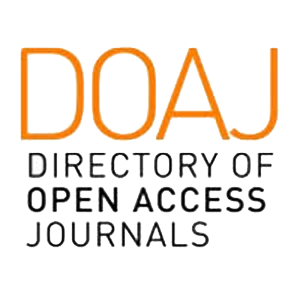La Escuela Histórica alemana y el “Debate del Método”
Abstract
This article is a brief introduction of the Historical School or German Historicism, identifying its conceptual, methodical and historical characteristics,
as well as its main stages and most representative authors. Particularly noteworthy is the theoretical dispute ‒known as Methodenstreit‒ which took place in 1883-1884 between one of its main representatives, Gustav Schmoller, and the Austrian economist Carl Menger in relation to the nature of economic science, its status as a discipline , its object of study, method and relations with other sciences.
Downloads
References
Chavance, Bernard (2018). La Economía Institucional. FCE. México.
Daniel, Jean-Marc (2017). Histoire Vivante de la Pensée Économique. Des crises et des hommes. Pearson. Montreuil.
Hayek, V. Friedrich (1944). The Road to Serfdom. The University of Chicago Press. Chicago.
Hergerhahn, Bruno (2011). Introducción a la Historia de la Psicología. Cengage Learning Editores. México.
Ikeda, Yukihiro (2008). “The German Historical School: toward the integration of the Social Sciences”, The History of Economic Thought, vol. 50, no. 1, pp. 79-95.
Kuhn, Thomas (1971). “La Estructura de las Revoluciones Científicas”, Breviarios No. 213. FCE, México.
Kurz, Heinz (2013). Geschichte des Ökonomischen Denkens. C. H. Beck. München.
Landreth, Harry y Colander, David (2006). Historia del Pensamiento Económico. Mc Graw Hill. Madrid.
Menger, Carl (2011). Die Irrtümer der Historismus in der Deutschen Nationalökonomie. GmBH, Paderborn.
Menger, Carl (1985). “Investigations into the Method of the Social Sciences. With special references to economics”, New York University Press. New York and London.
Menger, Carl (2007). Principles of Economics. Ludwig Von Mises Institute. Alabama.
Newman, Philippe (1963). Historia de las Doctrinas Económicas. Ed. Juventud. Barcelona.
Pierenkemper, Toni (2012). Geschichte des Modernen Ökonomischen Denkens. Vandenhoeck & Ruprecht. Göttingen.
Popper, Karl (1945). La sociedad abierta y sus enemigos. Paidós. Barcelona.
Ramos-Oliveira, Antonio (1964). Historia social y política de Alemania. FCE. México.
Reale Giovanni y Antiseri, Dario (1988). Historia del Pensamiento Filosófico y Científico. T. I-III. Herder, Madrid.
Roscher, Wilhelm (1843). Grundriss zur Vorlesung über die Staatswirschaft.
Rostow, Willheim (1963). Las etapas del desarrollo económico. FCE. México.
Ruiz, Raúl (s/f). “Guía para el análisis de la traducción española de `Política Social y Economía Política ́”, de Gustav von Schmoller, publicado en 1898. Universidad de Barcelona.
Schumpeter, Joseph (1989). History of Economic Analysis. Oxford University Press. New York.
Tribe, Karl (2002). “Historical School of Economics: German and English. Keel Economics research Papers”. Keel University. February. Staffordshire.
Veblen, Thorstein (1901). “Gustav Schmoller's Economics”. The Quarterly Journal of Economics, vol. 16, no. 1., Oxford University Press, pp. 69-93.
Weber, Max (1982). Historia Agraria Romana. Akal. Madrid.
Weber, Max (2003). La Ética Protestante y el espíritu del capitalismo. FCE. México.
Weber, Max (2011). Historia Económica General. FCE. México.














